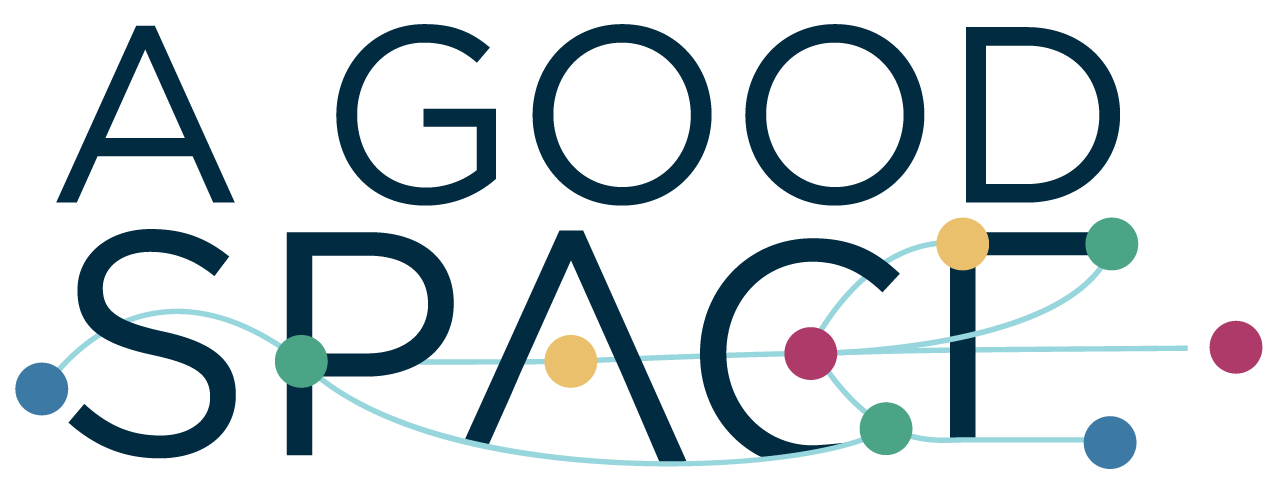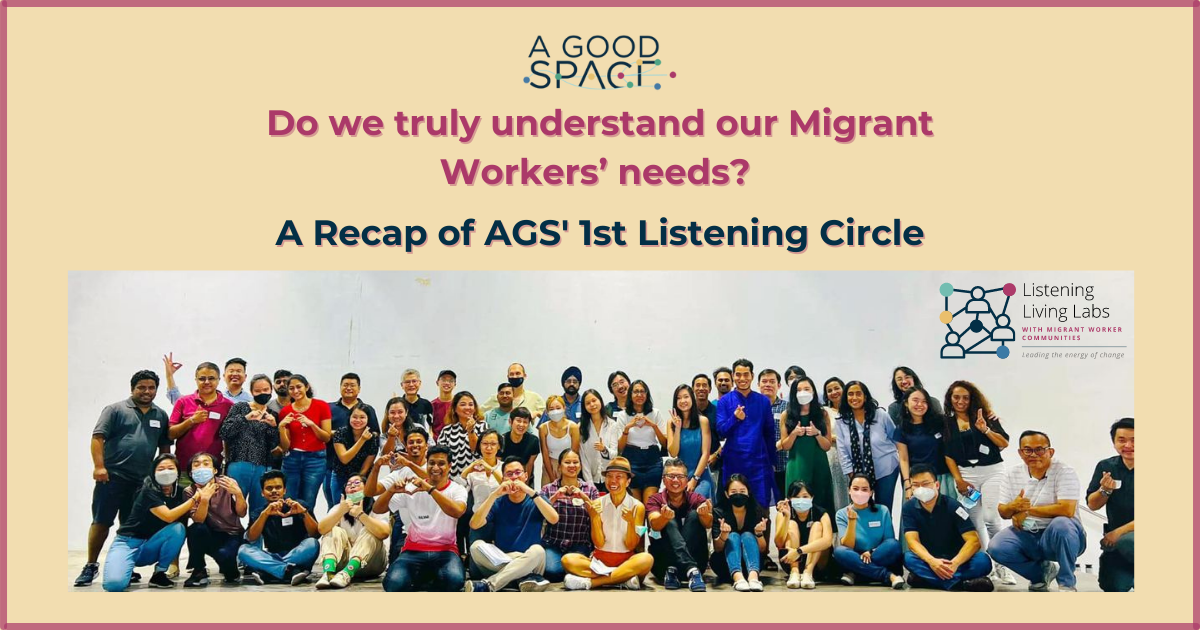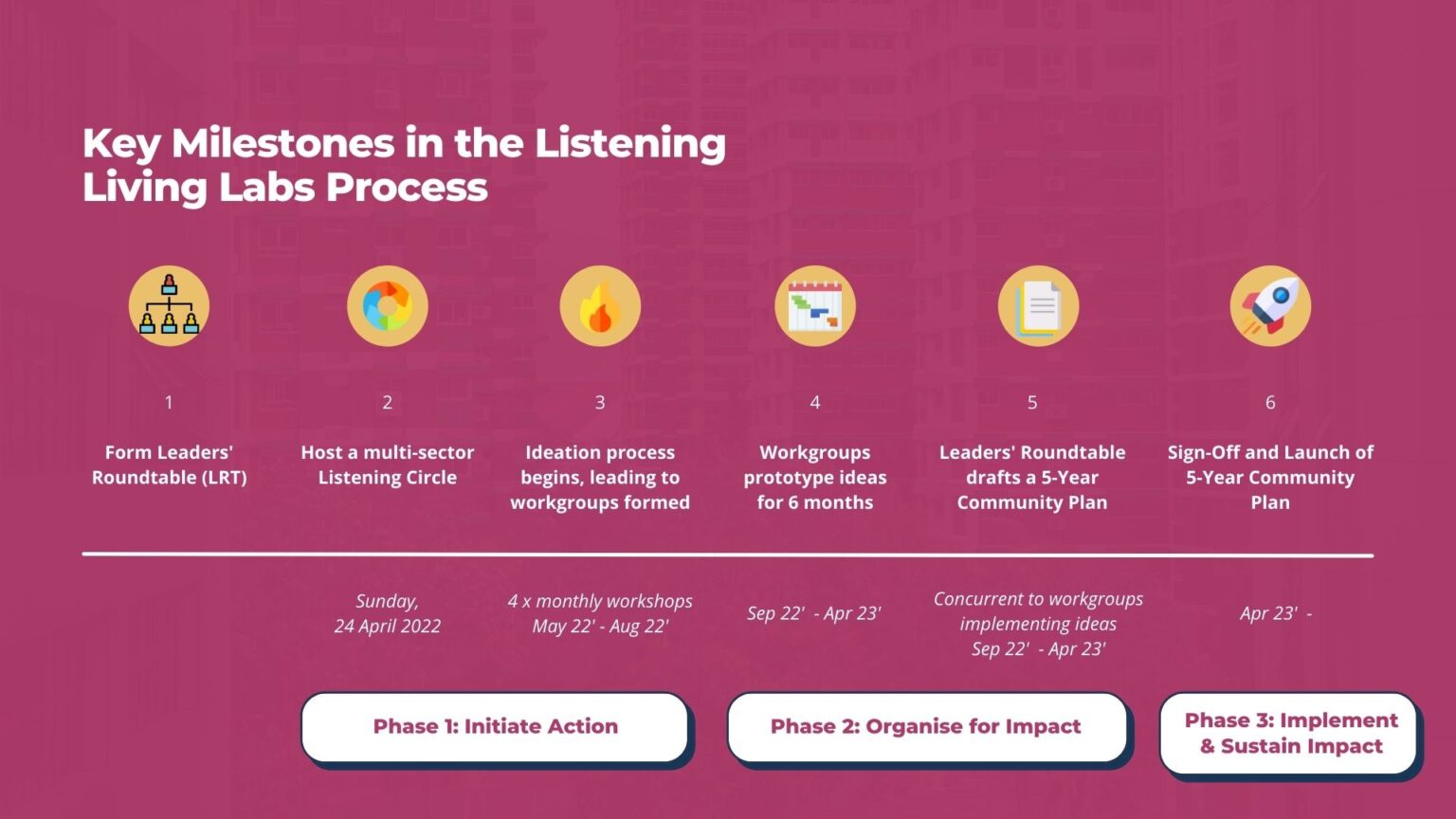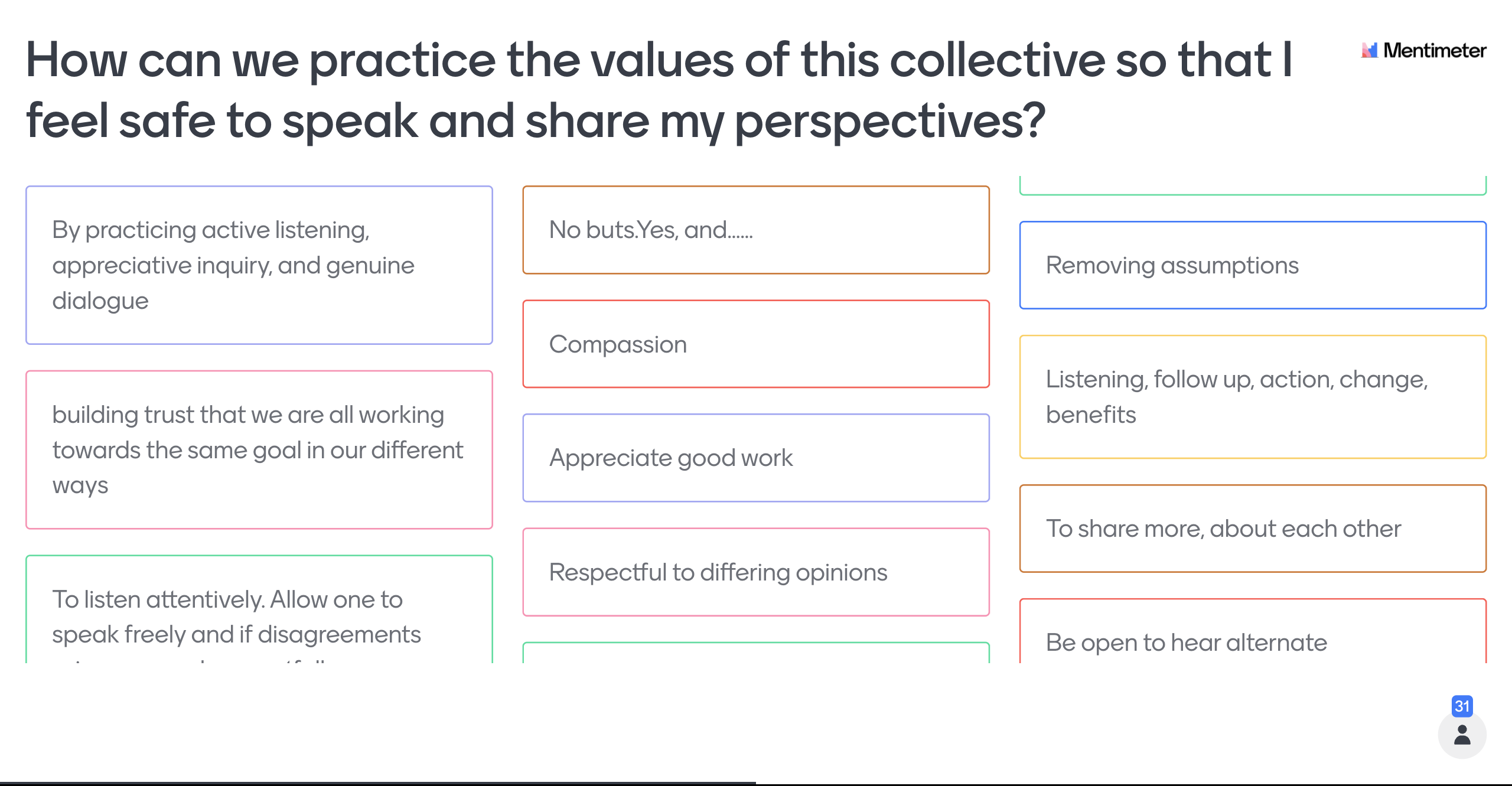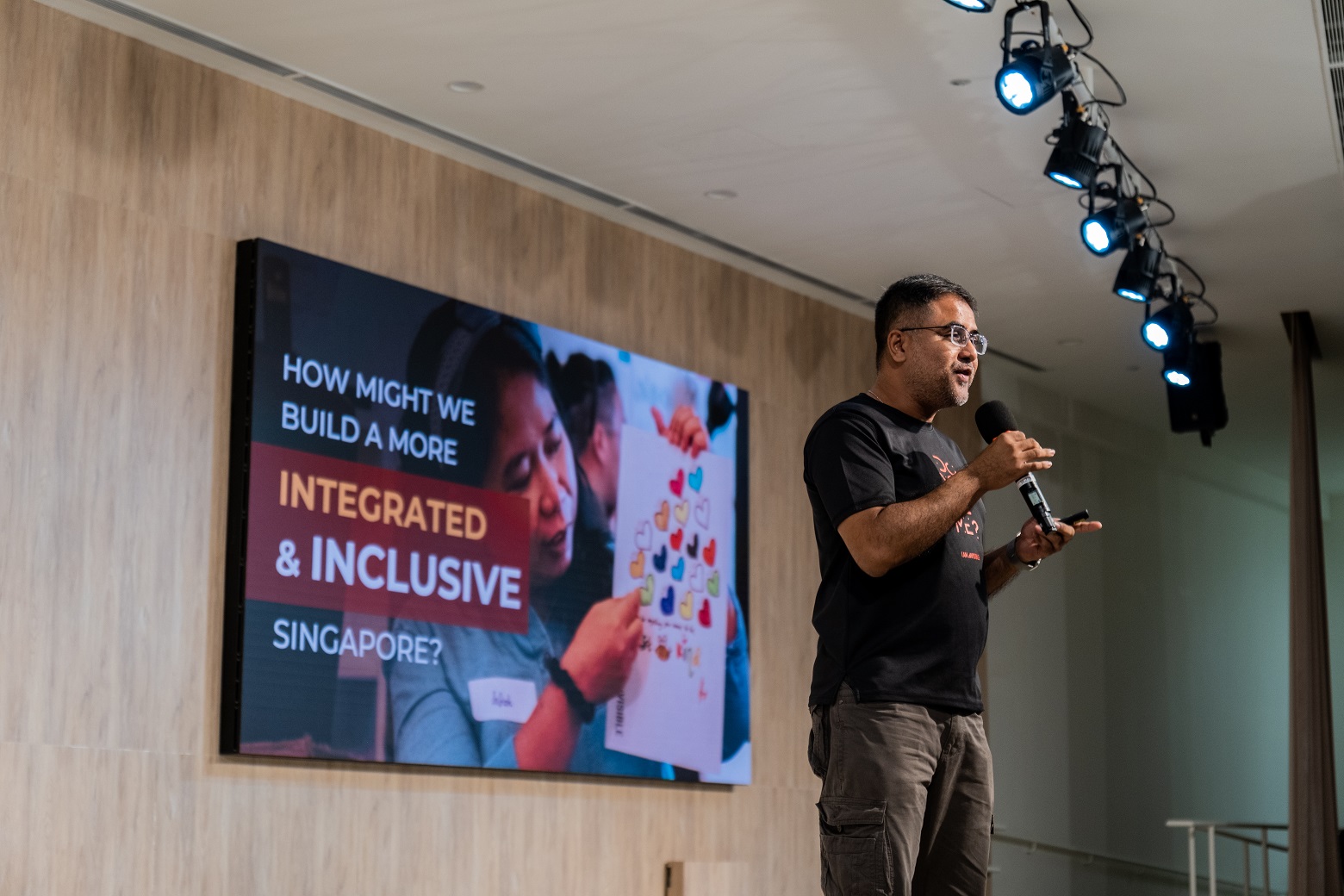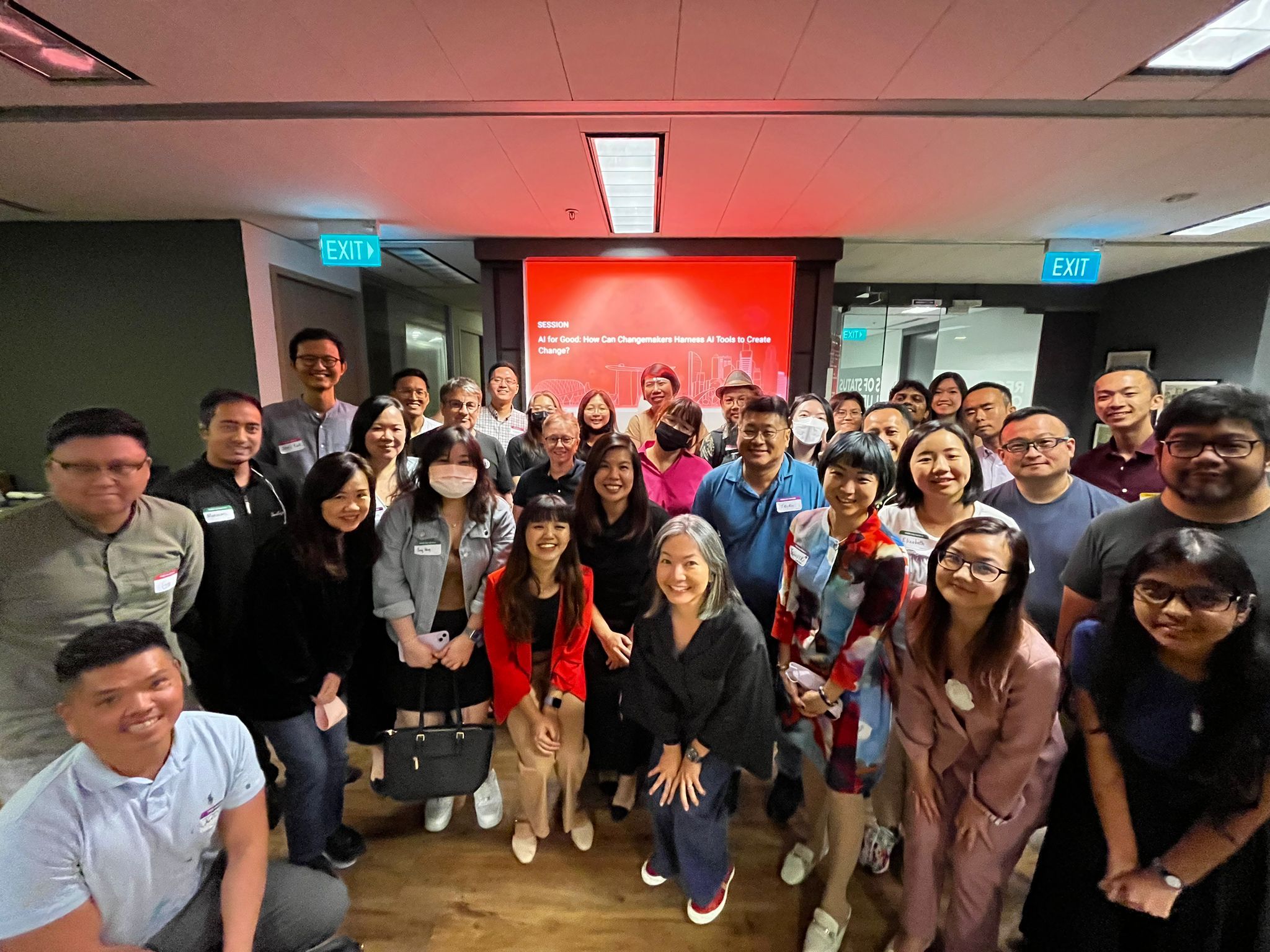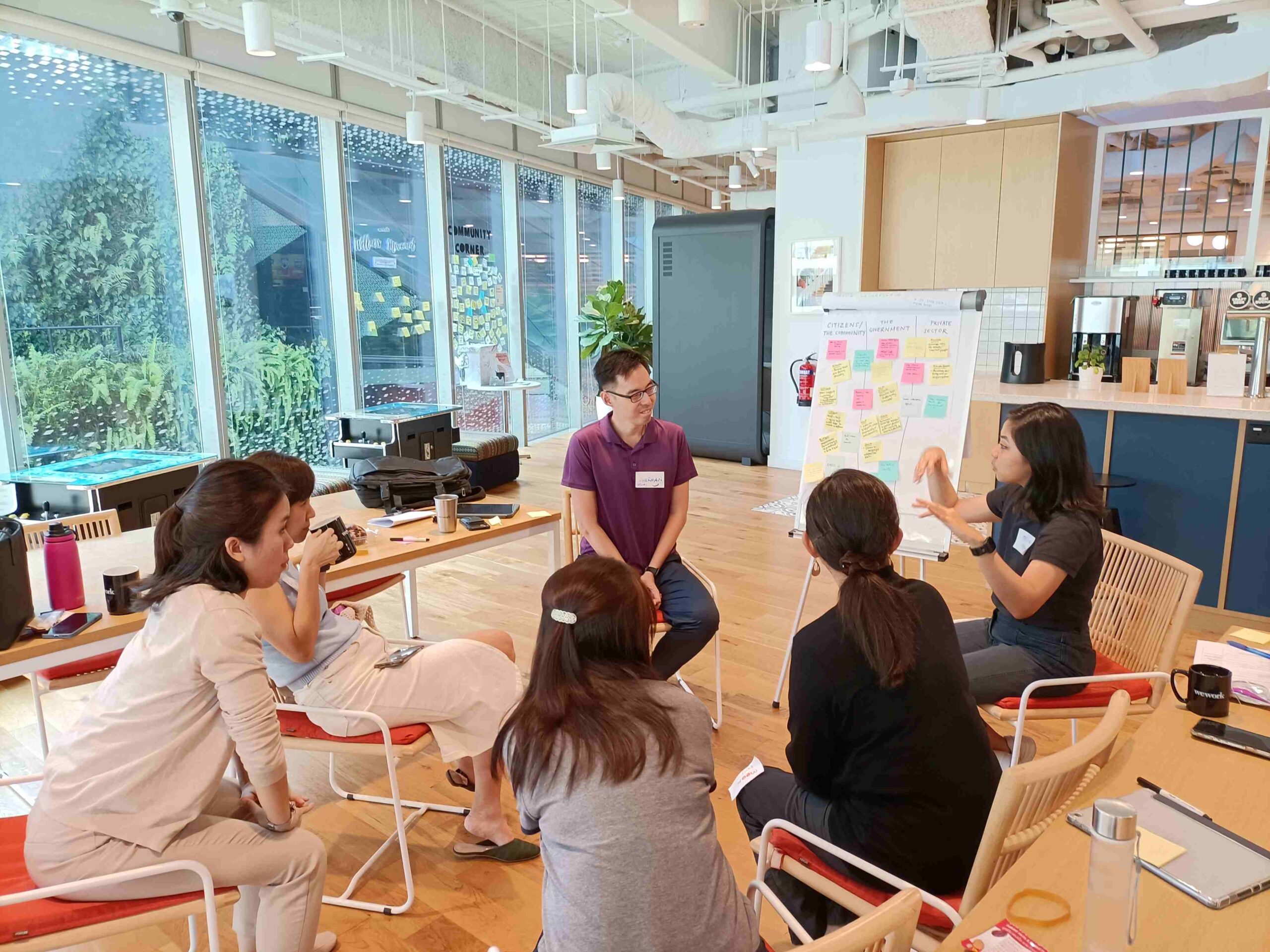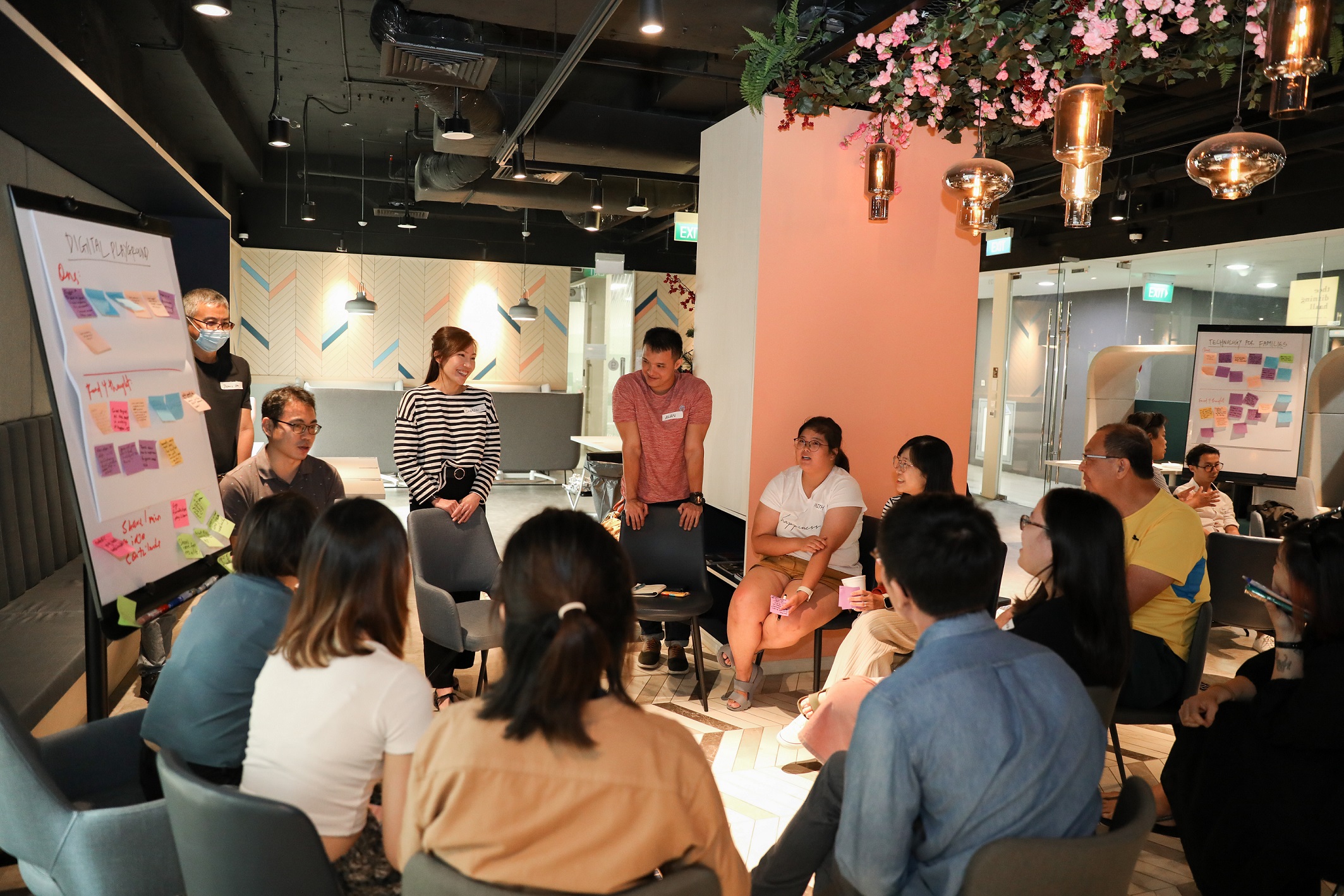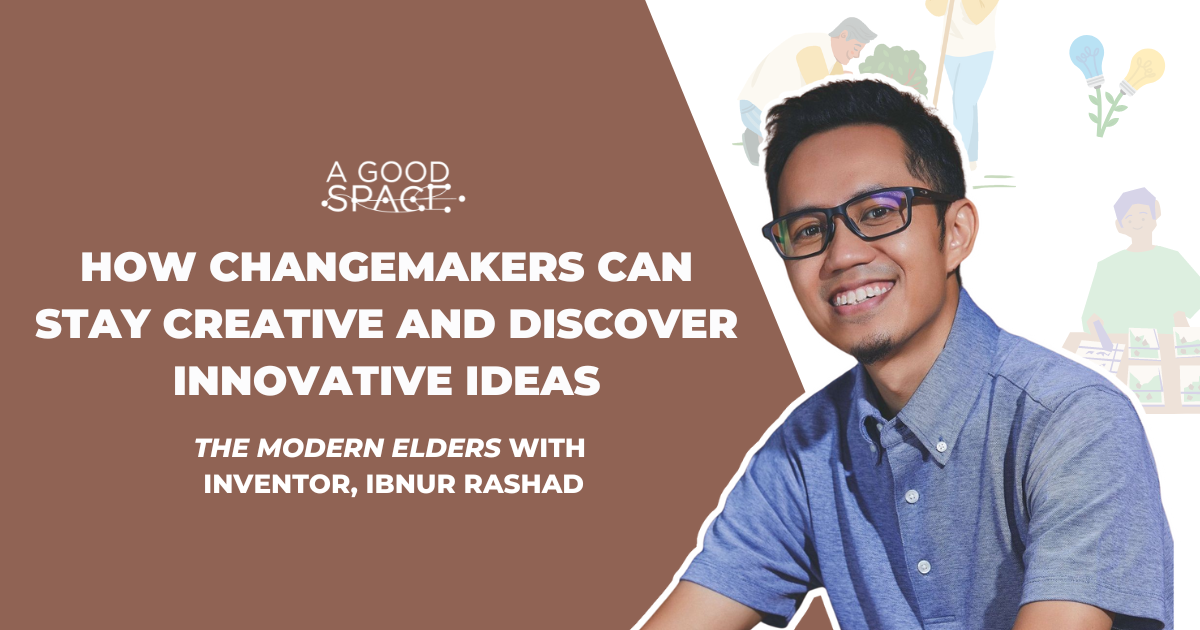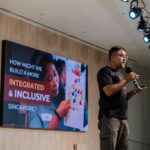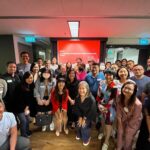Opening
On 24th April, our Listening Living Labs (L3) team held a Listening Circle at Terusan Recreation Centre, the first of five workshops in the L3 journey. Drawing inspiration from the Collective Impact process, the goal of the Listening Circle was to build on the comprehensive research and various dialogues hosted over the past 2 years of the pandemic, such as the National Volunteer Philanthropy Centre’s CoLabs for Migrant Workers and The Majurity Trust’s Building Bridges report, to convene multi-sector stakeholders to have a future-oriented discussion on how we can collectively address the challenges faced by migrant workers in Singapore.
The Listening Circle saw a whole-of-society gathering, with participants such as migrant workers, dorm operators, academics, employment agencies and NGOs coming together in this session.
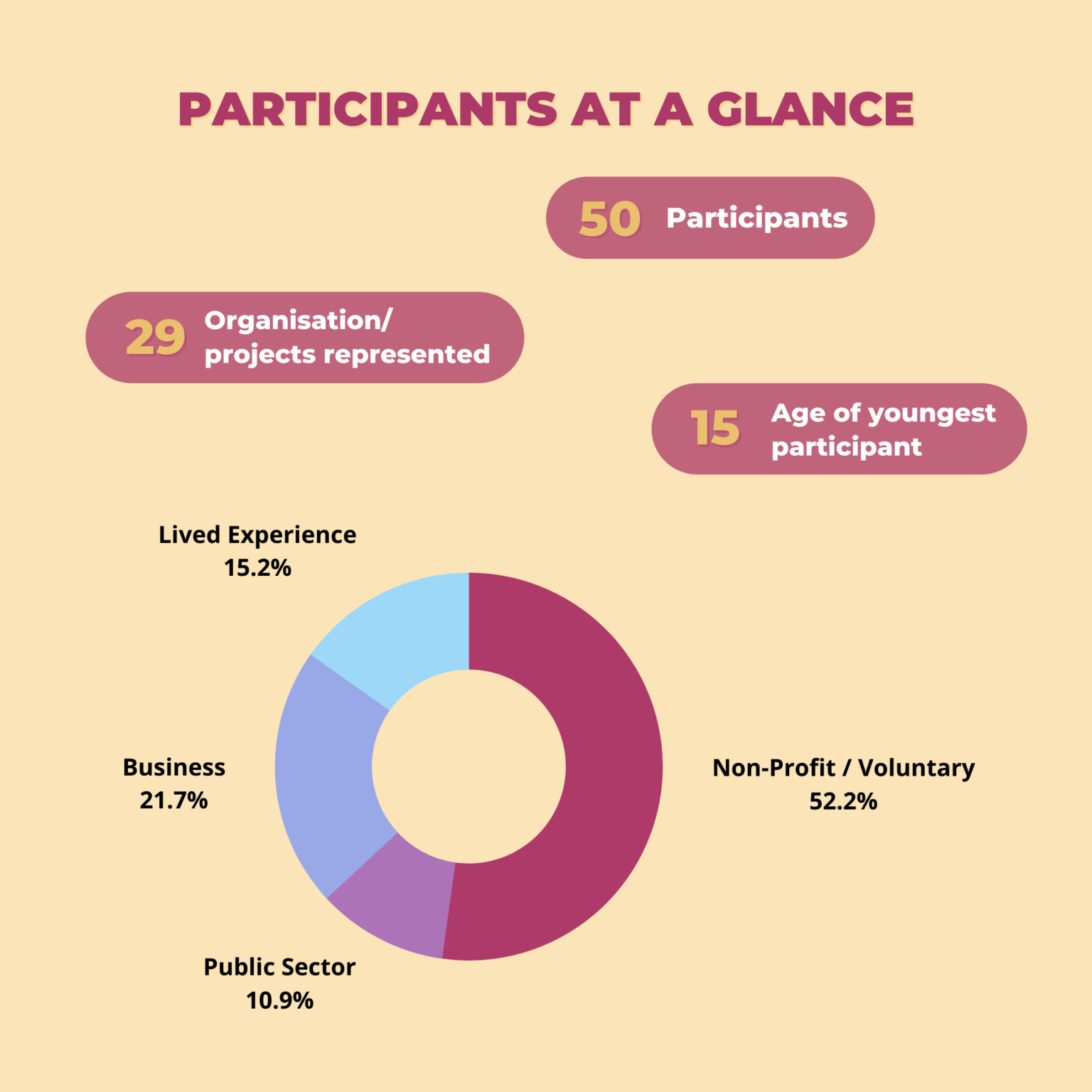
Defining the scope of Listening Living Labs: The 5 Key Issues
Prior to the session, we had identified 5 key issues that significantly affect migrant workers from the various research and dialogue efforts mentioned above as well as from our conversations with several leaders representing the multi-sector stakeholders in the space.
In doing so, we also uncovered some broad areas that overlap across migrant brothers and domestic sisters. The key issues identified were: high recruitment debt; struggles with living and working conditions; barriers of access to healthcare; social exclusion of migrant workers and caregiver burden.
We had also assembled the Leaders’ Roundtable, a team of 11 leaders representing the multi-sector stakeholder groups in the migrant worker space to serve as advisors and provide strategic guidance to us as we embark on the L3 process.
After looking at these 5 key issues, the leaders came up with a vision statement to guide the energy of the collective:
What needs to happen for Singapore to be a welcoming place for migrant workers to work and live in?
With this vision as the rallying call, we invited participants to join the Listening Circle and here was what happened:
Setting values and clarifying objectives as a collective: A safe and brave space
Before diving deep into breakout teams for discussion, Anthea Ong and Michael Cheah, the Co-Chairs of the Leaders’ Roundtable, reaffirmed the space as one that is centred around action and beyond mere ‘look-see’. This does not mean rushing into action, but rather finding meaningful ways for different stakeholders to place a stake in the vision put forth. Acknowledging the possible imbalanced power dynamics between the different stakeholders, we called for participants to practise being collaborators rather than combatants in prioritising the broader goal of wanting the best for our migrant workers.
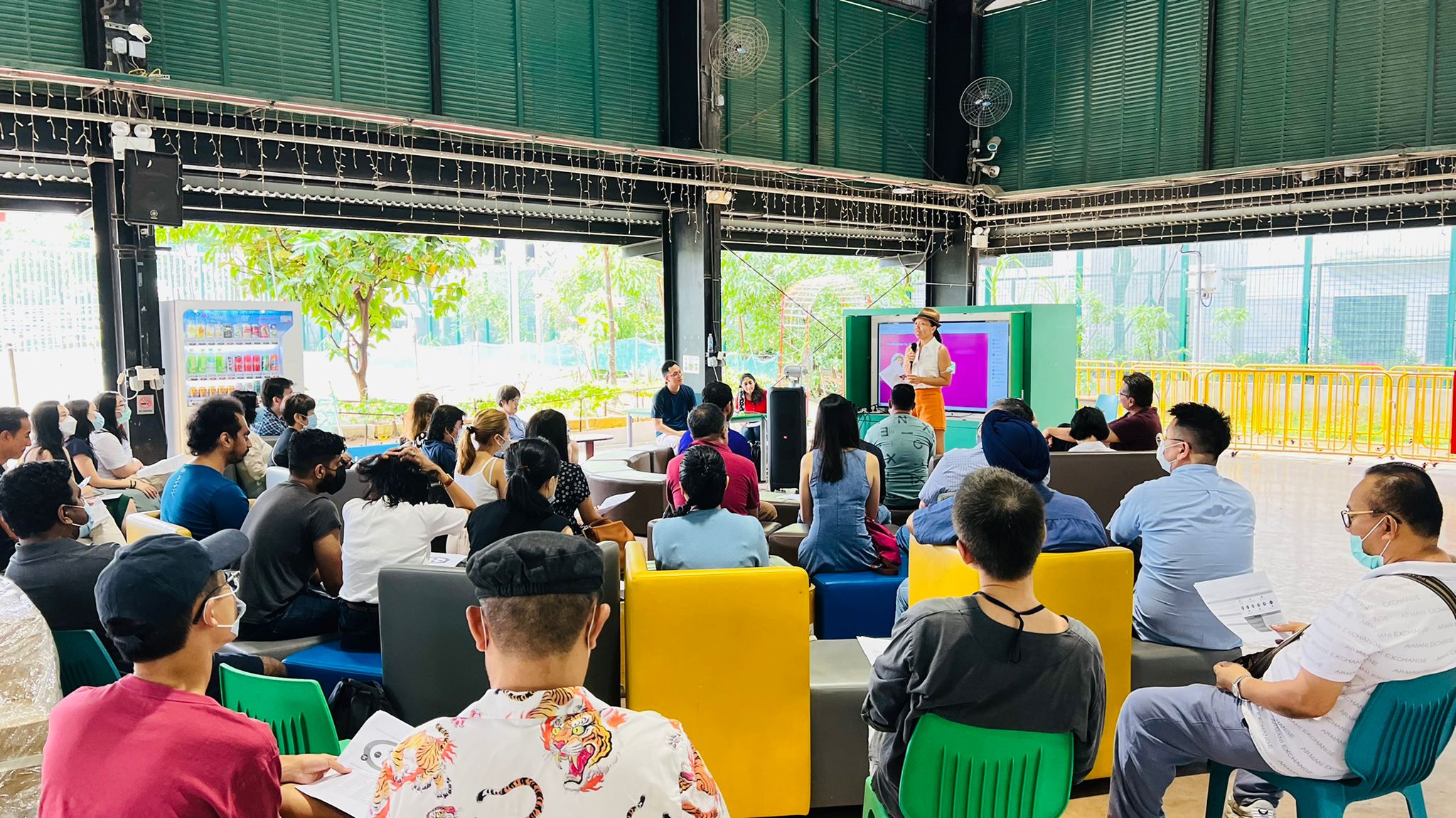
We also shared the values that the Leaders’ Roundtable had created – Respect, Listen, Presence, Curiosity and Inclusion – and invited participants to share how they could practice these values as a collective. Here is a screenshot of some of their responses:
Discussion #1: Who are the stakeholders and what’s important to them?
Participants were grouped into multi-stakeholder groups and randomly assigned one of the 5 issues. While some issues may have been foreign to them, it is precisely this unfamiliarity and a step outside of their comfort zone that can brew fresh perspectives that may be sorely missing from the changemaking space.
We encouraged participants to suspend assumptions and practice being curious in actively listening to each other – because everyone has a piece of the truth.
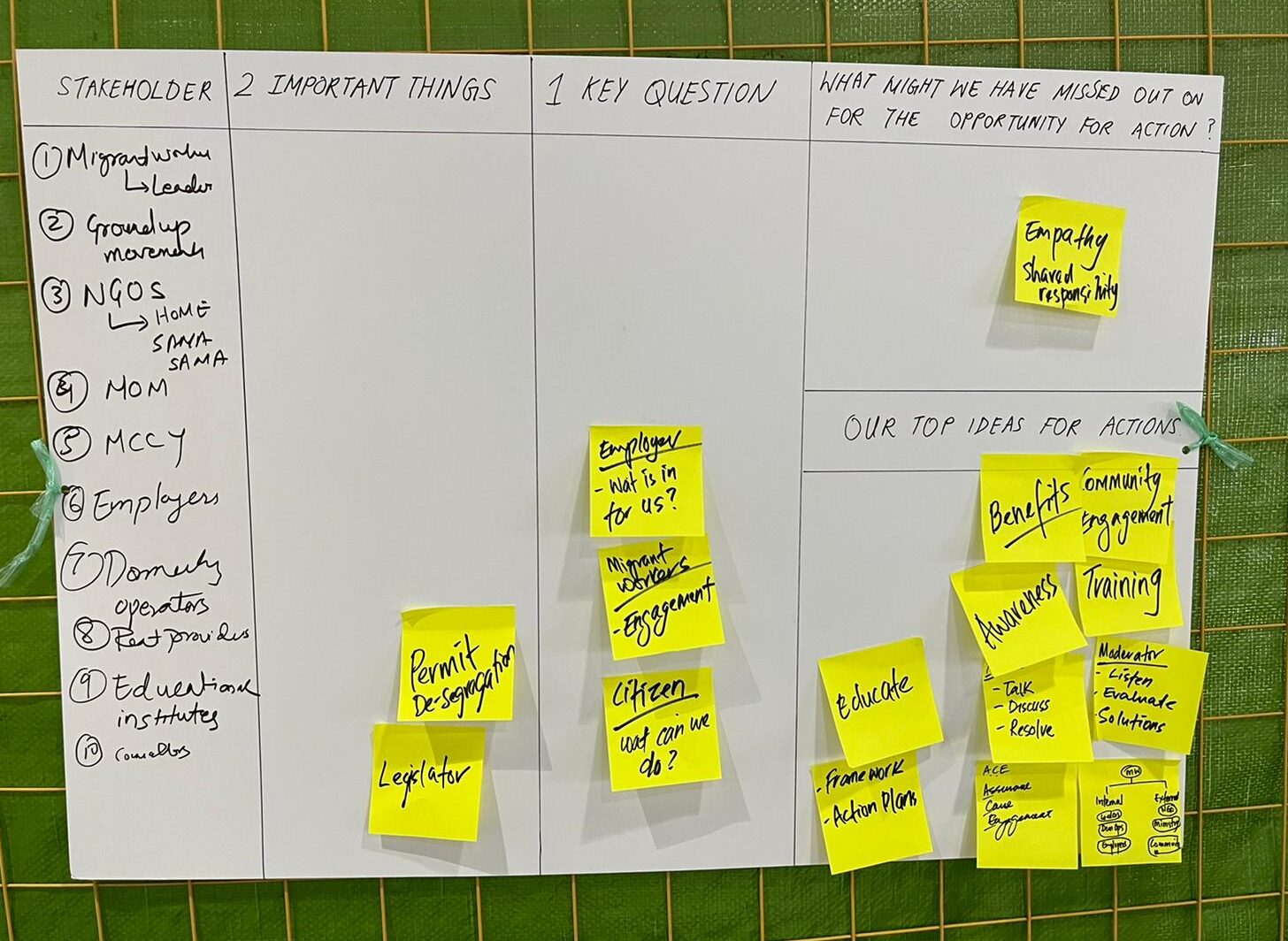
As a group, they were tasked to ponder upon these questions:
-Who are the key stakeholders in this issue?
-What are 2 things that are important to this stakeholder about this issue?
-What is 1 key question this stakeholder might ask when they think about actions that will address this issue?
-When thinking about opportunities for action, what might we have missed?
The teams then reconvened to share their key insights with the rest of the participants. Across the 5 issues, it was intriguing to observe some strong sentiments echoed, including:
- The need to centre the migrant worker’s voice when addressing the issues they face
- A pressing call to encourage different stakeholders to see the importance of addressing migrant worker-related issues.
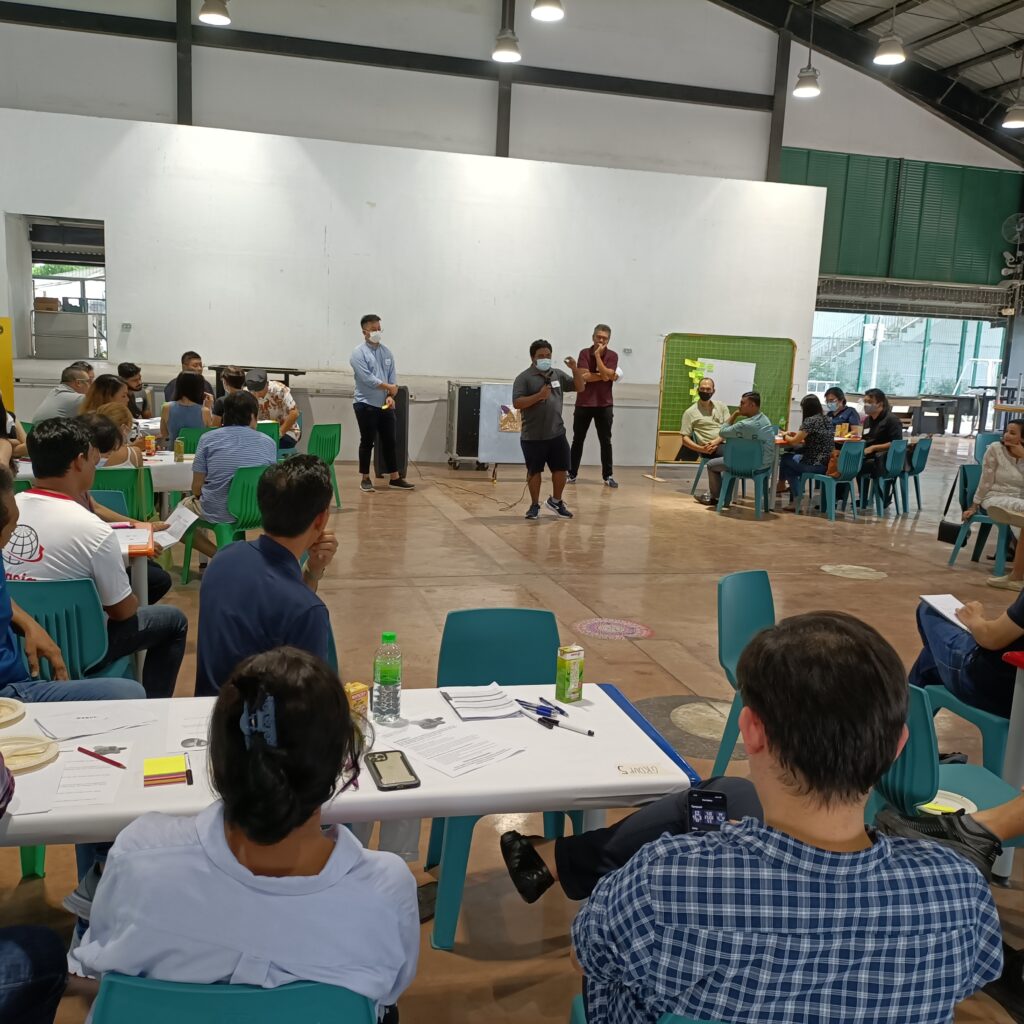
Discussion #2: What ideas do I see that can be prototyped in 6 months?
In the next discussion segment, participants were instructed to come up with 3 opportunities for action that can be prototyped in 6 months. In adopting a “Yes, And” mindset, we encouraged participants to build upon each other’s ideas, emphasising a sense of collaboration in coming up with actions for change that works for all – from migrant workers to employers too. We will refine these ideas further in our second session on 29 May 2022 and begin to form work-groups that can prototype these ideas to start creating positive change.
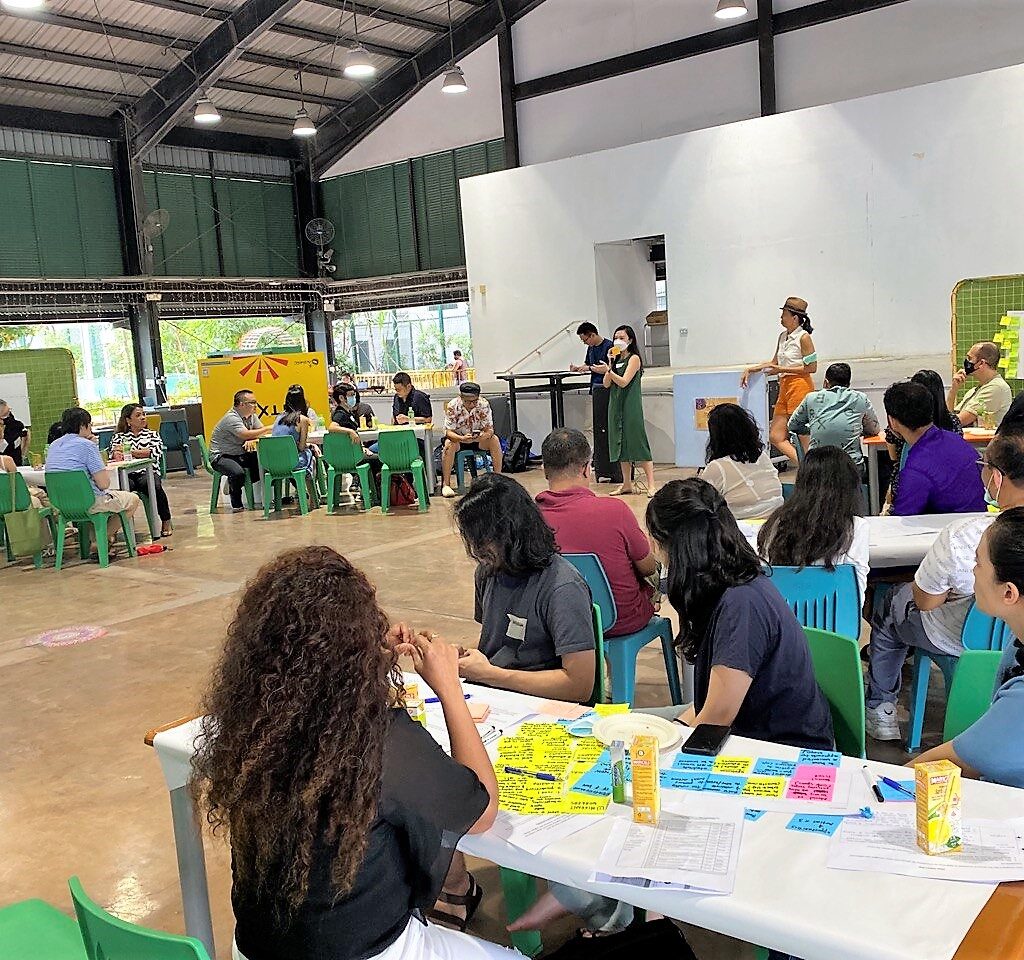
Across the 20+ ideas generated during the session, it was interesting to see some common themes across their proposed solutions, including:
- A call for transparency in resolving power imbalances
- Allowing migrant workers to create their own voice
- Setting benchmarks for good practices
The journey ahead: How can I contribute to Listening Living Labs?
Towards the end of the session, we invited participants to share a word that best describes how they were feeling as a check-out activity. We are grateful to see a consensus amongst participants on holding on to hope for change and a desire to commit to the process – important qualities to possess especially when the systemic change L3 is hoping to effect takes time.
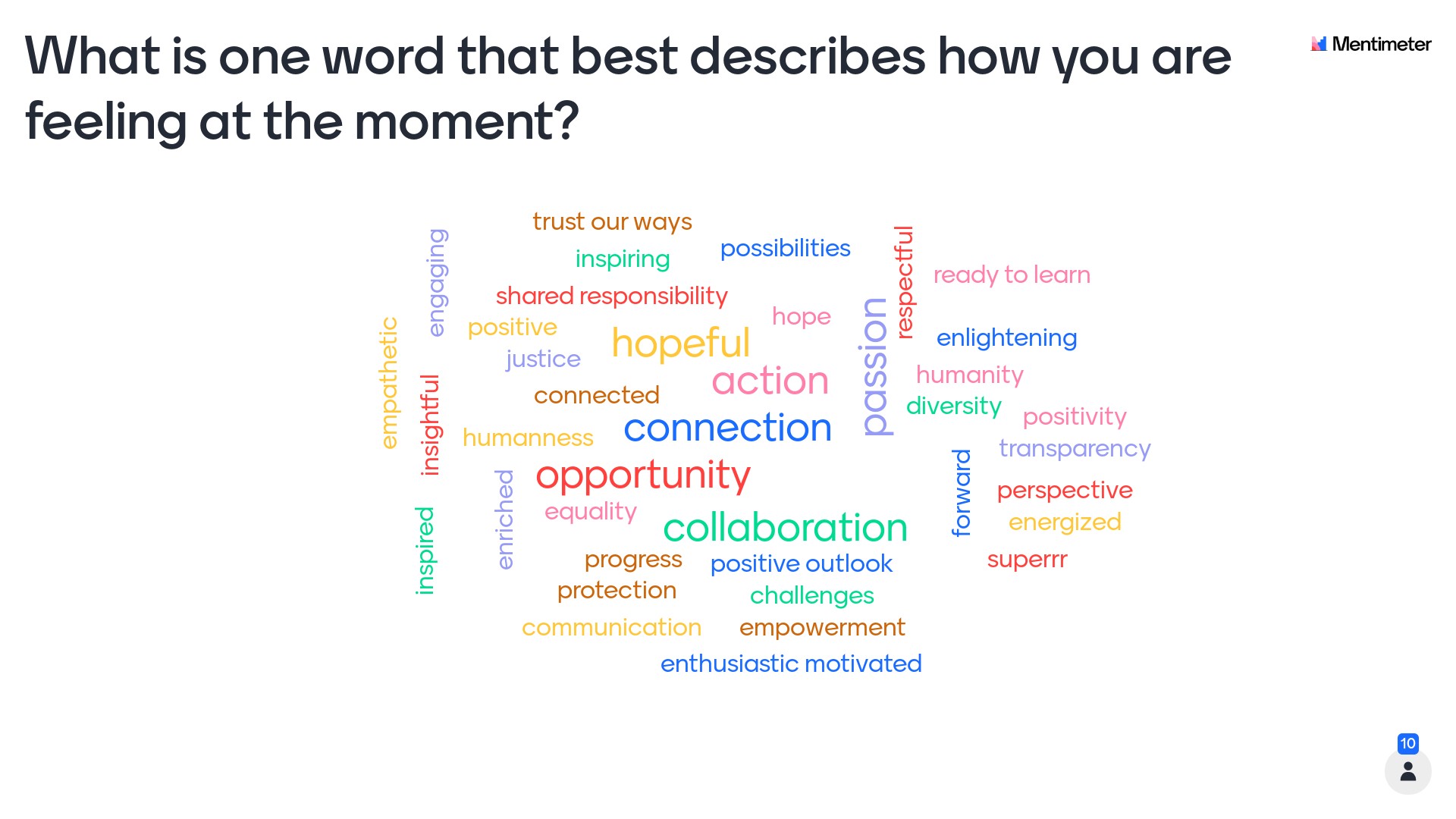
We are also very encouraged to see that almost 40% of participants indicated interest to participate in work-groups – the most active form of involvement in the L3 process – to bring the ideas they generated to life; and 46% of participants wanting to connect the work-groups to relevant resources.
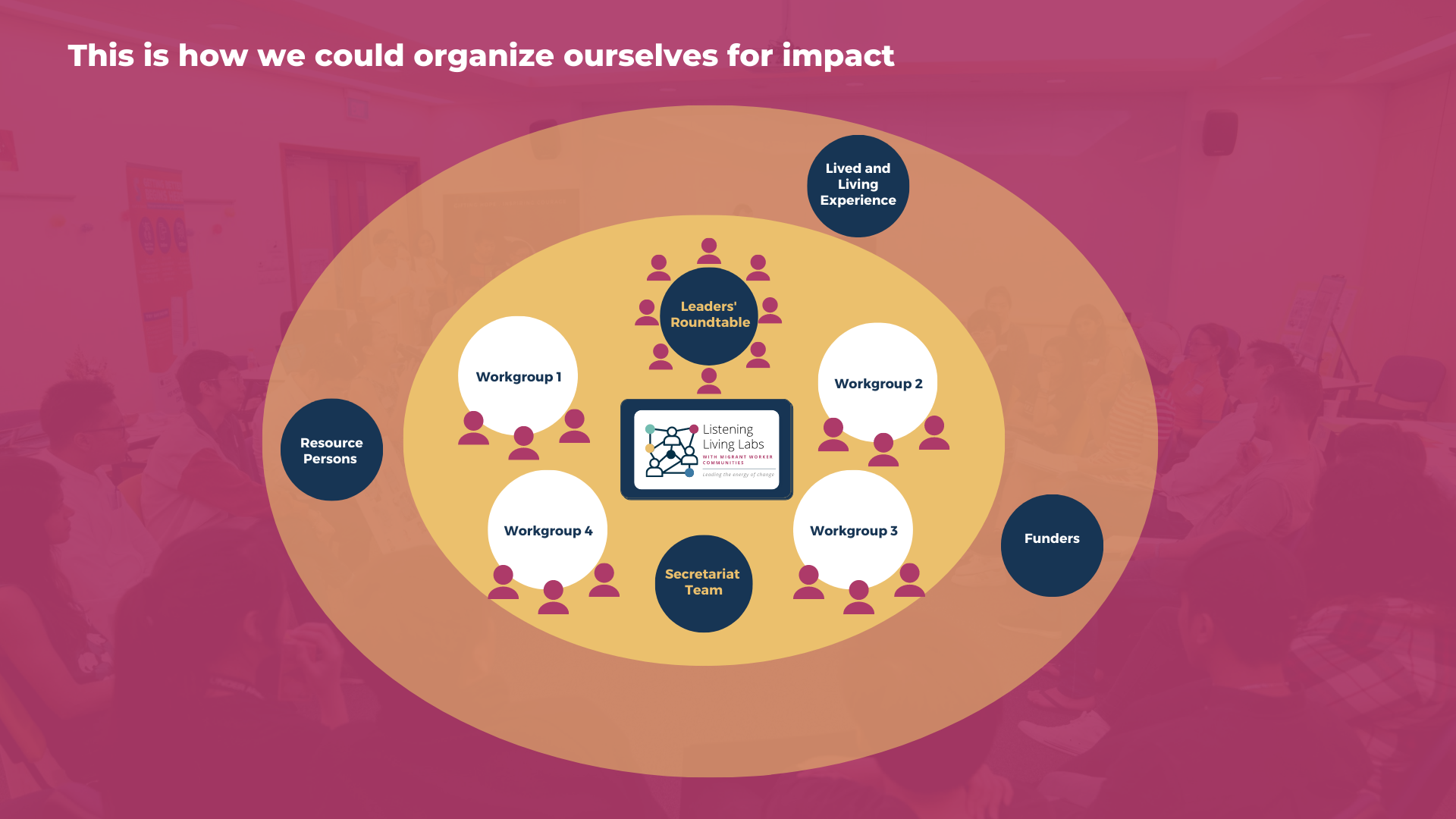
Our Learnings – Things to Celebrate
The team was extremely fortunate to have representatives from different stakeholder groups to not only turn up for the event but to contribute generously to the session’s activities. We felt that a safe and brave space was created in allowing participants to feel comfortable enough to share their perspectives while also opening themselves to listen and be changed by the perspectives of others. It was also great to see participants making connections beyond their usual networks – many were taking pictures together after the event and some even setting up Whatsapp groups with each other! This gives us hope that relationships are forming, which is crucial for action.
Our Learnings – Things to Improve
While the event generally went smoothly, the team acknowledges certain aspects we could have given more consideration to in reaping the most benefits from the gathering:
1. Have opportunities for more interaction between participants and movement around the space
We could have allocated more time for participants to not only share their team’s responses but to respond to other groups’ sharing. During the Listening Circle, an interesting exchange happened when an employer requested to respond to the migrant worker who shared about his living conditions, especially pertaining to the quality of food provided. From an employer’s perspective, he shared the rationale and efforts behind such choices, raising budget considerations amongst others. Building on this spontaneity, we could have also conducted data walks where participants can walk to and around each table to see what each team had come up with and be able to provide their instinctive thoughts in creating a more lively session.
2. Engage in regular pulse checks to ‘feel the room’ and continue to build trust
We acknowledge that being in a multi-stakeholder event may initially be daunting. Beyond establishing shared values at the start of the session, we could have also allowed participants to bring up their thoughts and feelings, within the group or privately, in creating a safer environment. This can look like providing participants colour-coded cards where they can indicate their reactions and responses (eg. ‘I absolutely have to speak’, ‘I would like to bring up a point about this later’, etc.) at different points of the session. This would also allow the facilitators to adjust the session and better engage attendees accordingly.
3. Establish intentional breaks to collect ourselves
While we remain conscious of the session’s time constraints, we should prioritise intentional breaks in allowing participants (and the team) to breathe and digest thoughts and ideas being generated in the space.
Closing
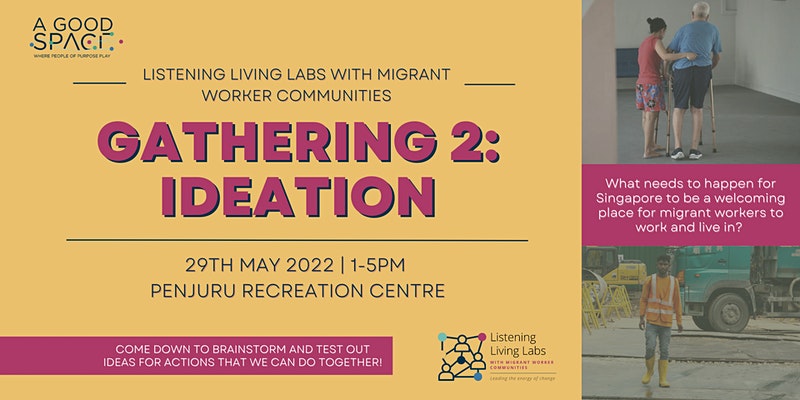
In our next workshop, we’ll refine these ideas that were generated and start to form work-groups to act on these ideas. If this sounds like something you want to be a part of, we’d love to have you on board!
Do reach out to us via email at livinglabs@agoodspace.org and we will get in touch with you.

Sarah T
Sarah is a Social Changemaker Intern at A Good Space. She is a full-time cat mom who loves all things batik.
